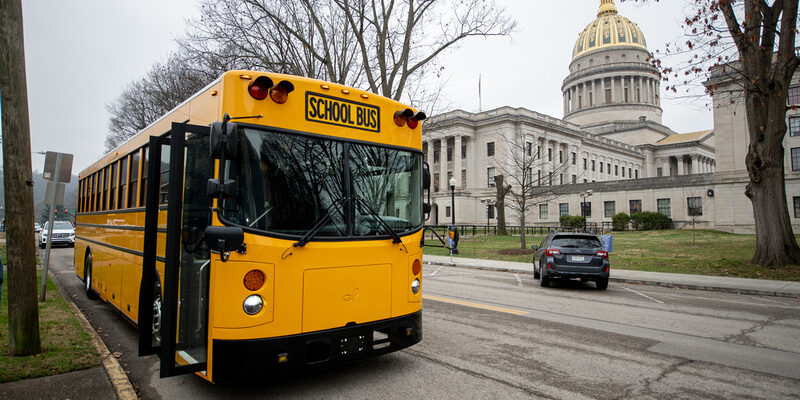SOUTH CHARLESTON, W.Va. — GreenPower, the electric bus maker set up in South Charleston, has laid off a number of workers.
More than a dozen workers were notified by email on Friday. The company confirmed the layoffs to MetroNews Monday morning.
The news first surfaced at a meeting of the BridgeValley Community and Technical College Board of Governors Friday afternoon.
BridgeValley Professor Ron Rogillio said some of those being laid off got the email while they were in his class Friday. The workers train at BridgeValley.
“Seventeen of the people don’t work there anymore,” Rogillo told the BridgeValley BOG at the end of its meeting Friday afternoon. “Our classroom this afternoon went from about 20 to about six.”
The exact number of workers laid off has yet to be confirmed by the company.

According to a redacted layoff notice sent to MetroNews, GreenPower President Brendan Riley said it was a very difficult decision but there have been recent developments out of the control of the company.
Riley said “the imposition of new tariffs has significantly increased our operational costs and disrupted our ability to build and deliver buses in a timely manner.”
Riley added they’ve been trying to manage the new challenges through cost-cutting and restructuring but it wasn’t enough.
“Regrettably, we must proceed with a reduction in our workforce, and your position will be affected as part of the layoff, effective immediately,” Riley said.
He thanked the employees for their work and said the decision to cut jobs was not made lightly.
MORE: GreenPower aimed at 91 electric school buses for West Virginia and delivered 12
GreenPower sent MetroNews a statement Monday morning confirming the layoffs. The statement largely mirrored the email sent to workers but added further explanation.
“The recent implementation of trade tariffs is causing much harm to the entire school bus manufacturing sector,” the statement said. “This business instability and the significantly increased costs impacts all school bus manufactures whether they are producing electric, diesel, propane or gas school buses. The implications are staggering.
“If a school bus manufacturer were able to pass these costs on to a school district, it would amount to a tax on the government as the cost would be paid by either local, state or federal government funding. But a school bus original equipment manufacturer (OEM) cannot pass on the increased cost since there are state contracts in place for the purchase of school buses. The new tariffs leave no pathway for a school bus OEM to build vehicles in the United States and it completely halts GreenPower’s efforts to on-shore and friend-shore the supply chain, especially non-Chinese battery cells and components,” the company said.
GreenPower told MetroNews last month that it had fewer than 100 workers.
State officials said the operation would bring up to 200 new jobs to the state when manufacturing started in late 2022, with the potential workforce to eventually reach up to 900 new jobs when full production hit two years after that.
GreenPower has orders for 91 buses from the state but have only delivered 12. Company officials told MetroNews there were a numbers of reasons for the slow pace including the hold-up of a major grant from the federal EPA.
Photo above by Perry Bennett/West Virginia Legislature Photography



